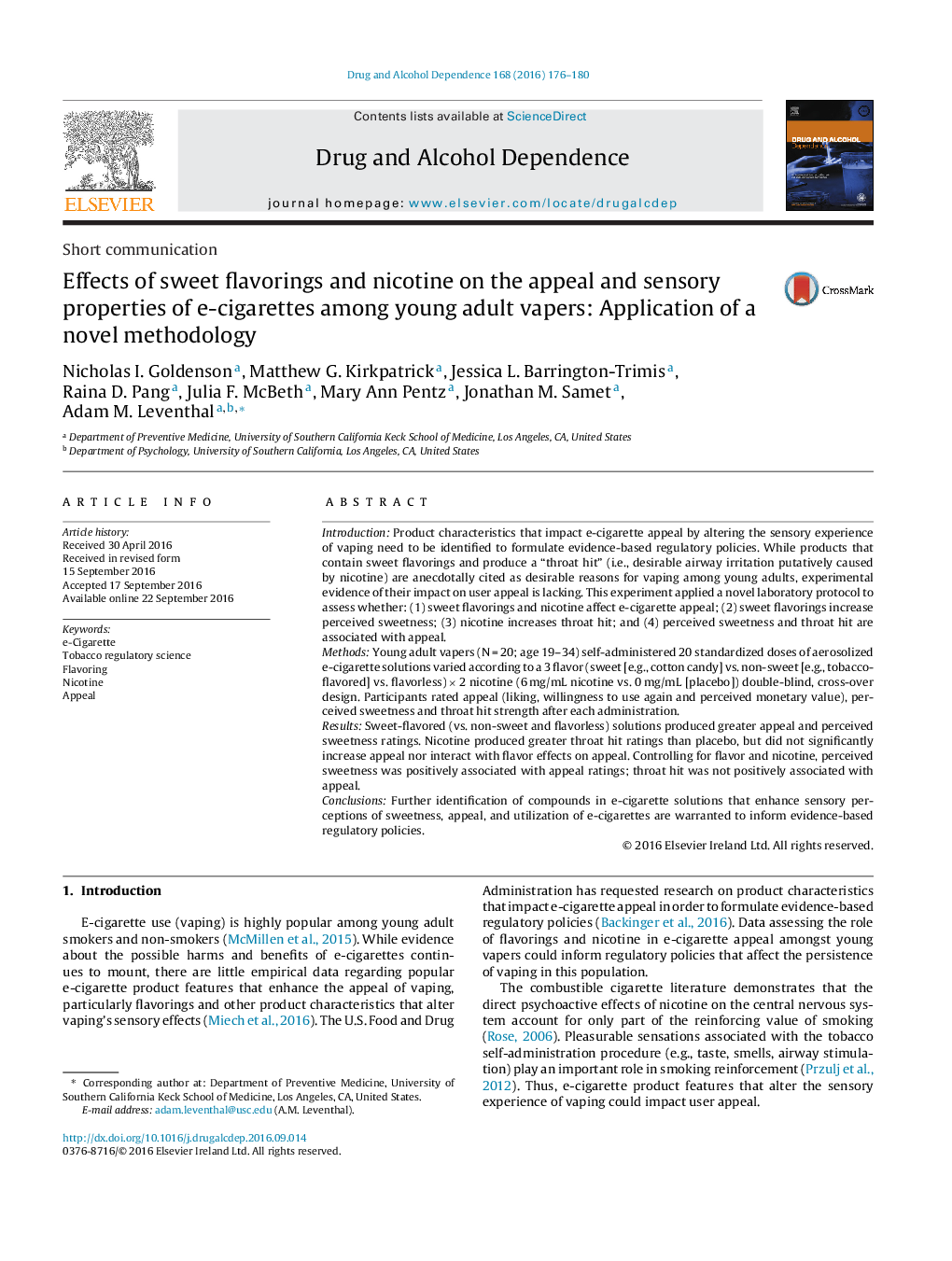| Article ID | Journal | Published Year | Pages | File Type |
|---|---|---|---|---|
| 5120479 | Drug and Alcohol Dependence | 2016 | 5 Pages |
â¢Sweet flavorings in e-cigarettes enhanced user perceptions of product appeal.â¢Nicotine in e-cigarettes increased throat hit but did not affect product appeal.â¢Provides initial validation of a novel methodology for evaluating e-cigarettes.
IntroductionProduct characteristics that impact e-cigarette appeal by altering the sensory experience of vaping need to be identified to formulate evidence-based regulatory policies. While products that contain sweet flavorings and produce a “throat hit” (i.e., desirable airway irritation putatively caused by nicotine) are anecdotally cited as desirable reasons for vaping among young adults, experimental evidence of their impact on user appeal is lacking. This experiment applied a novel laboratory protocol to assess whether: (1) sweet flavorings and nicotine affect e-cigarette appeal; (2) sweet flavorings increase perceived sweetness; (3) nicotine increases throat hit; and (4) perceived sweetness and throat hit are associated with appeal.MethodsYoung adult vapers (NÂ =Â 20; age 19-34) self-administered 20 standardized doses of aerosolized e-cigarette solutions varied according to a 3 flavor (sweet [e.g., cotton candy] vs. non-sweet [e.g., tobacco-flavored] vs. flavorless)Â ÃÂ 2 nicotine (6Â mg/mL nicotine vs. 0Â mg/mL [placebo]) double-blind, cross-over design. Participants rated appeal (liking, willingness to use again and perceived monetary value), perceived sweetness and throat hit strength after each administration.ResultsSweet-flavored (vs. non-sweet and flavorless) solutions produced greater appeal and perceived sweetness ratings. Nicotine produced greater throat hit ratings than placebo, but did not significantly increase appeal nor interact with flavor effects on appeal. Controlling for flavor and nicotine, perceived sweetness was positively associated with appeal ratings; throat hit was not positively associated with appeal.ConclusionsFurther identification of compounds in e-cigarette solutions that enhance sensory perceptions of sweetness, appeal, and utilization of e-cigarettes are warranted to inform evidence-based regulatory policies.
